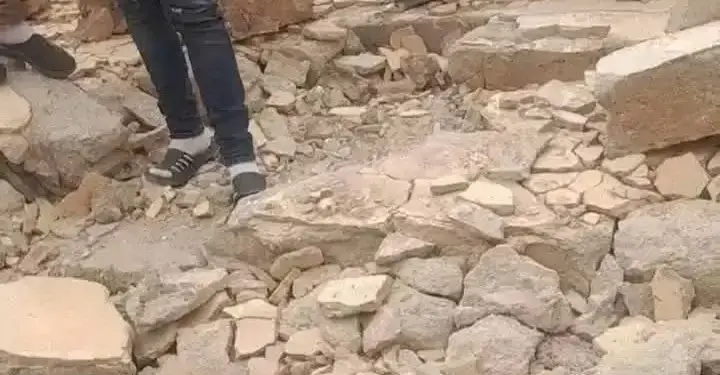The drama that occurred in Mazzouna, where three high school students died after the collapse of a dilapidated wall, reveals the alarming state of school infrastructure in Tunisia. While more than 4,500 establishments require urgent work, the federation of secondary education calls for a day of mourning and protest, accusing the state of abandonment and irresponsibility. A tragic symbol of the collapse of an essential public service.
Three dead. Three barely major students, crushed by a lizarded wall in a high school in Mazzouna. This drama is not an isolated tragedy, it is the silent cry of a ruined school, of an abandoned system, of a sacrificed youth.
This Tuesday, April 15, the courses are suspended in all high schools and colleges in the country. A collective judgment, a national mourning at the call of the General Federation of Secondary Education. But this suspension goes beyond homage: it is an accusation. A reporting on the chronic disengagement of the authorities, of their inaction in the face of the alarming degradation of school infrastructure, of their inability to guarantee a fundamental right: to learn in security.
In Mazzouna, it was not the winds or earthquakes that killed these children. These are forty years of negligence. These are walls built in 1983, never renovated, never monitored. And these are above all ignored warnings: in 2022 already, the Court of Auditors alerted to the existence of 1,300 establishments with “real structural risk”. Nothing has been done.
The President of the Republic, Kais Saied, expressed his pain and ordered the opening of an investigation, demanding a national audit of schools and sanctions. It would take more than an audit to give the public school its dignity. You need a rescue plan. It takes a clear, structured, constant political will. Above all, it is necessary to end DIY.
Because the figures are freezing: 4,500 out of 6102 establishments require urgent interventions. Thousands of students study in buildings without water, without electricity, sometimes even without fences. In rural regions, going to school becomes a physical, moral, sometimes fatal test.
The Ministry of Education is not innocent. His chief, Noureddine Nouri, visited Sidi Bouzid a week before the drama, without seeing – or without denouncing – the state of dilapidation of the place. Last November, he promised renovations as part of a budget, however increasing. Promises that have remained a dead letter, as too often.
What happened in Mazzouna is more than an accident. It is an alarm signal, a breaking point. Tunisian school is in danger. She no longer needs discourse or diagnostics. She needs acts, concrete renovations, a reinvention of the educational public service. And she needs, above all, that we stop waiting for other children to die to wake up.








